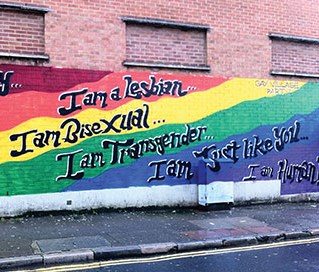Research training and support
The independent research programme is balanced and enhanced with a range of support from your supervisors and the extended academic community. Whatever the focus of your research degree project, you will be able to draw on research approaches from a variety of related fields. You can develop research plans and apply methods involving both quantitative and qualitative data, supported by appropriate research methods training.
You and your fellow postgraduate researchers will have the opportunity to attend and present at research seminar sessions with guests from professional and academic spheres across architecture and the built environment. The PhD programme will give you the opportunity to build research skills as well as developing transferable skills essential for employment and practice within architecture and its related fields.
As members of the Brighton Doctoral College, research students benefit from regular opportunities on a training programme designed to support postgraduate researchers at all stages of the PhD and help them achieve their career goals. Attendance at appropriate workshops within this programme is encouraged, as is contribution to the various seminar series hosted by the school and the annual Postgraduate Research Festival. Academic and technical staff also provide more subject-specific training.
Postgraduate degree resources for graduate students
We pride ourselves on conducting research with impact that serves society, policy, and industry. PhD candidates often work with local communities, regional authorities, and industry partners on real-world challenges. This approach aligns with Brighton’s civic mission and ensures research goes beyond theory into meaningful application. The University of Brighton offers a rich blend of academic rigour and real-world impact.
You will benefit from access to international research resources, including a contemporary range of electronic resources via the university’s Online Library, as well as the physical book and journal collections housed within campus libraries. The library services are connected to national and international collections and students also have the option of inter-library loans.
Research Excellence Framework REF2021
Across REF2014 to REF2021, the University of Brighton has been one of the outstanding applied university performers in its disciplinary range. Our impact in the field of LGBTQ+ health issues is exemplary, with major international projects forming the bedrock of proud achievements across the academic field.
Our Research Excellence Framework (REF2021) submissions included, as well as many outputs showing the world-leading and internationally significant work of individual expert staff, several impact case studies that testified to the outstanding contributions of work towards LGBTQIA+ equalities, for example in healthcare innovations and media-focused analytics and critique.

The Brighton Pride celebrations have inspired murals in significant places for the city. This one was painted on a wall of the James Street Tesco store for the Village Street Party in 2012 and became an iconic and well-photographed image, with further designs agreed with property owners in later years.